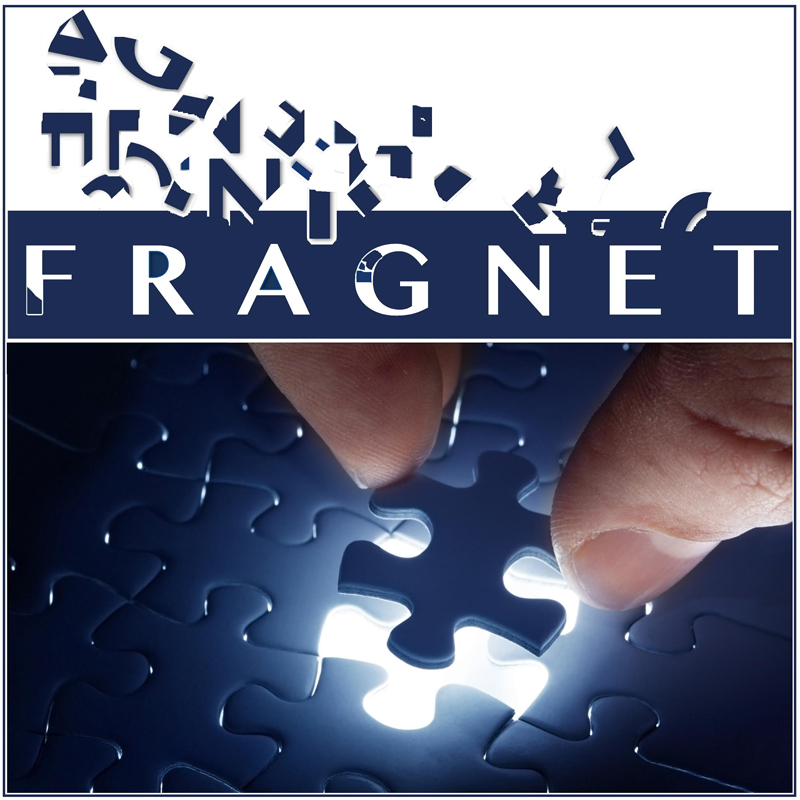Fellows
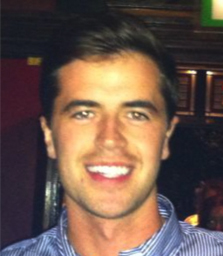 Edward Fitzgerald – has recently obtained an M.Sc in medical biotechnology with thesis work carried out at the Wyss Institute, Harvard University. His project focused on incorporating human cells into a novel microfluidic chip or “Organ-On-A-Chip” to develop a human model of the blood-brain barrier. Upon completion Edward was awarded a fellowship to continue his research at Harvard working on novel therapeutic strategies and drug delivery across the brain. Prior to this Edward a native of Ireland conducted his undergraduate studies at the National University of Ireland Galway where he received a B.Sc(Hons) in biopharmaceutical chemistry. During that time he worked on a computational drug discovery project at The Complex Carbohydrate Research Centre, University of Georgia USA. Currently Edward is interested in epigenetic drug targets for the central nervous system.
Edward Fitzgerald – has recently obtained an M.Sc in medical biotechnology with thesis work carried out at the Wyss Institute, Harvard University. His project focused on incorporating human cells into a novel microfluidic chip or “Organ-On-A-Chip” to develop a human model of the blood-brain barrier. Upon completion Edward was awarded a fellowship to continue his research at Harvard working on novel therapeutic strategies and drug delivery across the brain. Prior to this Edward a native of Ireland conducted his undergraduate studies at the National University of Ireland Galway where he received a B.Sc(Hons) in biopharmaceutical chemistry. During that time he worked on a computational drug discovery project at The Complex Carbohydrate Research Centre, University of Georgia USA. Currently Edward is interested in epigenetic drug targets for the central nervous system.
Project: ESR6: FBLD experimental methods
Industrial supervisor: Prof Helena Danielson (Beactica, Uppsala University)
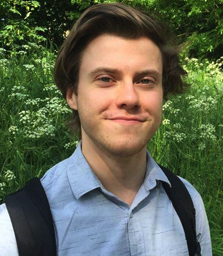 David Hamilton – began his further education at Winstanley College, Wigan, in 2010 before embarking on a Chemistry degree at the University of York, UK. After three years of undergraduate study in York, he spent the final year of his MChem working in the discovery group at Takeda Pharmaceuticals in Cambridge, UK. It was here that he developed a real interest in the application of organic chemistry to the medicinal setting, having particular interest in the multidisciplinary nature of the field. In 2016 he secured a PhD position on the FragNet project, working on the development of small 3D aliphatic rings for use in fragment based drug discovery, under the supervision of Dr Maikel Wijtmans and Prof. Iwan de Esch at Vrije Universiteit, Amsterdam. He is also a keen badminton player and runner, and other personal interests include languages (Spanish, and hopefully Dutch), travelling, films, reading, equality and the outdoors.
David Hamilton – began his further education at Winstanley College, Wigan, in 2010 before embarking on a Chemistry degree at the University of York, UK. After three years of undergraduate study in York, he spent the final year of his MChem working in the discovery group at Takeda Pharmaceuticals in Cambridge, UK. It was here that he developed a real interest in the application of organic chemistry to the medicinal setting, having particular interest in the multidisciplinary nature of the field. In 2016 he secured a PhD position on the FragNet project, working on the development of small 3D aliphatic rings for use in fragment based drug discovery, under the supervision of Dr Maikel Wijtmans and Prof. Iwan de Esch at Vrije Universiteit, Amsterdam. He is also a keen badminton player and runner, and other personal interests include languages (Spanish, and hopefully Dutch), travelling, films, reading, equality and the outdoors.
Project: ESR 1: 3D Fragments with small aliphatic rings
Academic supervisors: Dr. Maikel Wijtmans and prof. dr. Iwan de Esch (VU University Amsterdam)
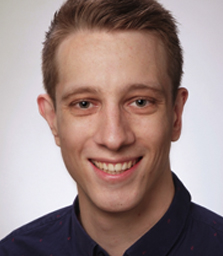 Sébastien Keiffer – early stage researcher in fragment-based lead discovery (FBLD) at ZoBio BV in Leiden, the Netherlands. He started his bachelor’s studies in Chemistry in 2010 at the Albert Ludwig University of Freiburg, Germany, which he finalised with a bachelor’s thesis in biochemistry in 2013 on nitrous oxide reductase (N2OR) in the lab of Prof. Einsle. Afterwards, he enrolled in the newly-established Biochemistry & Biophysics Master’s course, during which he accomplished a semestral internship at the Ribbe lab at the University of California, Irvine, USA, working on the nitrogenase complex. He finished his Master’s studies in the Einsle lab in 2015 with a thesis on an uncanonical sulphite and its appertaining electron shuttle. He enrolled in the Fragnet programme to expand his the theoretical and practical horizon and realise its feasibility in a more industrial environment, focussing on contemporary challenges by investigating ligand-protein binding events of proteins involved in diseases. He has experience in recombinant protein production in bacterial systems, the subsequent purification and crystallisation, and some analytical methods to determine enzyme kinetical and thermodynamic parameters; everything both under oxic and anoxic conditions and in the light of structural biology.
Sébastien Keiffer – early stage researcher in fragment-based lead discovery (FBLD) at ZoBio BV in Leiden, the Netherlands. He started his bachelor’s studies in Chemistry in 2010 at the Albert Ludwig University of Freiburg, Germany, which he finalised with a bachelor’s thesis in biochemistry in 2013 on nitrous oxide reductase (N2OR) in the lab of Prof. Einsle. Afterwards, he enrolled in the newly-established Biochemistry & Biophysics Master’s course, during which he accomplished a semestral internship at the Ribbe lab at the University of California, Irvine, USA, working on the nitrogenase complex. He finished his Master’s studies in the Einsle lab in 2015 with a thesis on an uncanonical sulphite and its appertaining electron shuttle. He enrolled in the Fragnet programme to expand his the theoretical and practical horizon and realise its feasibility in a more industrial environment, focussing on contemporary challenges by investigating ligand-protein binding events of proteins involved in diseases. He has experience in recombinant protein production in bacterial systems, the subsequent purification and crystallisation, and some analytical methods to determine enzyme kinetical and thermodynamic parameters; everything both under oxic and anoxic conditions and in the light of structural biology.
Project: ESR5: Biophysics Based FBLD
Industrial supervisor: Dr. Gregg Siegal (Zobio)
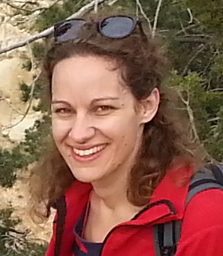 Hanna Klein (Marie Curie Early Stage Researcher)– completed her MSc research on the Synthesis of Antifolates in the Department of Chemistry at the University of the Witwatersrand, South Africa. At the end of 2013, she joined Endocyte Inc.; an American biopharmaceutical company situated within Purdue University’s Research Park. As a member of their Discovery Chemistry research group she worked on the development of Small Molecule Drug Conjugates (SMDCs) as part of their targeted therapy approach for the treatment of cancer and inflammatory diseases. More specifically she was involved in the early stage synthesis of various targeting ligands and peptidic/carbohydrate based spacer units as well as in their conjugation to cytoxic agents. She is currently completing her PhD studies on the Design and Synthesis of Novel 3D Lead-Like Compounds under the supervision of Professor O’Brien and Professor Hubbard at the University of York, UK.
Hanna Klein (Marie Curie Early Stage Researcher)– completed her MSc research on the Synthesis of Antifolates in the Department of Chemistry at the University of the Witwatersrand, South Africa. At the end of 2013, she joined Endocyte Inc.; an American biopharmaceutical company situated within Purdue University’s Research Park. As a member of their Discovery Chemistry research group she worked on the development of Small Molecule Drug Conjugates (SMDCs) as part of their targeted therapy approach for the treatment of cancer and inflammatory diseases. More specifically she was involved in the early stage synthesis of various targeting ligands and peptidic/carbohydrate based spacer units as well as in their conjugation to cytoxic agents. She is currently completing her PhD studies on the Design and Synthesis of Novel 3D Lead-Like Compounds under the supervision of Professor O’Brien and Professor Hubbard at the University of York, UK.
Project: ESR2: Novel 3D fragments
Academic supervisor : Prof. dr. Peter O’Brien and Prof. dr. Rod Hubbard (University of York)
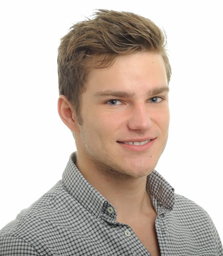 Maciej Majewski – is an ESR at the University of Barcelona supervised by Prof. Xavier Barril. After five years of intensive studies in biology, chemistry and physics, he obtained BSc (2014) and MSc (2016) in Molecular Biophysics at the University of Warsaw. During that time he was working in Prof. Jacek Jemielity lab at the Center of New Technologies. His project was related to chemical synthesis of modified nucleotides, mostly analogs of 5’ mRNA end (cap), and use of gold nanoparticles in biosensing. Maciej also graduated from BSc of Chemistry (2015), after working in Dr. Joanna Sulkowska group, on non-trivial topologies in protein structure prediction. He received numerous scholarships from Polish Ministry of Science, University and European Union. In 2015 Maciej was given an opportunity to be a part of Janelia Undergraduate Scholars Programme, where he worked in Dr. Luke Lavis lab on chemical synthesis of novel fluorescent dyes. In his free time, when he is not designing drugs or working in the lab, Maciej is traveling, watching science-fiction movies and working out.
Maciej Majewski – is an ESR at the University of Barcelona supervised by Prof. Xavier Barril. After five years of intensive studies in biology, chemistry and physics, he obtained BSc (2014) and MSc (2016) in Molecular Biophysics at the University of Warsaw. During that time he was working in Prof. Jacek Jemielity lab at the Center of New Technologies. His project was related to chemical synthesis of modified nucleotides, mostly analogs of 5’ mRNA end (cap), and use of gold nanoparticles in biosensing. Maciej also graduated from BSc of Chemistry (2015), after working in Dr. Joanna Sulkowska group, on non-trivial topologies in protein structure prediction. He received numerous scholarships from Polish Ministry of Science, University and European Union. In 2015 Maciej was given an opportunity to be a part of Janelia Undergraduate Scholars Programme, where he worked in Dr. Luke Lavis lab on chemical synthesis of novel fluorescent dyes. In his free time, when he is not designing drugs or working in the lab, Maciej is traveling, watching science-fiction movies and working out.Project: ESR10: Fragment evolution platform – molecular simulations
Academic supervisor: Prof. Xavier Barril (University of Barcelona)
Eleni Makraki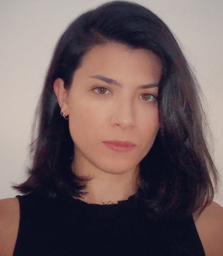 Eleni Makraki – took a merit scholarship entering in Biology Department (Bachelor degree), University of Crete, Greece. In 2012, worked as research assistant at the Crystallography laboratory of Institute of Molecular Biology and Biotechnology (IMBB-FORTH) of Crete-Greece under supervision of professor Michael Kokkinidis. Her basic education includes a Master of Science in “Protein Biotechnology” programme (2013) of Biology department, University of Crete-Greece, which carried out with excellence. In 2014, Eleni joined the Enzyme Biotechnology laboratory (IMBB-FORTH) of professor Vassilis Bouriotis working on the polysaccharide deacetylase, BA0330, from Bacillus anthracis as potential drug target during her master research. In 2016, she returned to Crystallography laboratory (IMBB-FORTH) where she worked as research assistant. She is interested in applying fragment-based method for lead activation of industrial important enzymes and drug discovery.
Eleni Makraki – took a merit scholarship entering in Biology Department (Bachelor degree), University of Crete, Greece. In 2012, worked as research assistant at the Crystallography laboratory of Institute of Molecular Biology and Biotechnology (IMBB-FORTH) of Crete-Greece under supervision of professor Michael Kokkinidis. Her basic education includes a Master of Science in “Protein Biotechnology” programme (2013) of Biology department, University of Crete-Greece, which carried out with excellence. In 2014, Eleni joined the Enzyme Biotechnology laboratory (IMBB-FORTH) of professor Vassilis Bouriotis working on the polysaccharide deacetylase, BA0330, from Bacillus anthracis as potential drug target during her master research. In 2016, she returned to Crystallography laboratory (IMBB-FORTH) where she worked as research assistant. She is interested in applying fragment-based method for lead activation of industrial important enzymes and drug discovery.
Project: ESR12: Covalent fragments to activate industrial enzymes
Academic supervisors: Prof. dr. Peter O’Brien and Prof. dr. Rod Hubbard (University of York)
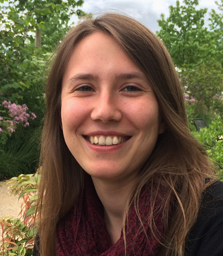 Lena Münzker – is the Marie Curie PhD Fellow in the Fragnet program under the supervision of Dr. Wolfgang Jahnke and Dr. Andreas Marzinzik in the Center of Proteomic Chemistry at Novartis Basel. She graduated with a Bachelor’s Degree in Chemistry and a Master’s Degree in Biological Chemistry from the University of Vienna in 2015. During her studies, Lena Münzker did a 6-month internship on the synthesis of oligosaccharides at SynphaBase in Switzerland and carried out her Master’s Project in Prof. Paul Robert Hansen’s lab at the University of Copenhagen. In her Master thesis, she reported the successful on-resin synthesis of macrocyclic peptides via intramolecular halide displacement and applied the strategy on the synthesis of lipidated cyclic and bicyclic antimicrobial peptides. After finishing her studies, she took the opportunity to join Prof. Nathanael Gray’s lab at the Dana Farber Cancer Institute in Boston and learned new techniques and methods in the field of protein kinase inhibitors. She will combine and expand her experience in her PhD project, which comprises structural biophysics and fragment-based drug discovery to identify novel inhibitors of the Trypanosomal cruzi FPPS for the treatment of Chagas’ Disease.
Lena Münzker – is the Marie Curie PhD Fellow in the Fragnet program under the supervision of Dr. Wolfgang Jahnke and Dr. Andreas Marzinzik in the Center of Proteomic Chemistry at Novartis Basel. She graduated with a Bachelor’s Degree in Chemistry and a Master’s Degree in Biological Chemistry from the University of Vienna in 2015. During her studies, Lena Münzker did a 6-month internship on the synthesis of oligosaccharides at SynphaBase in Switzerland and carried out her Master’s Project in Prof. Paul Robert Hansen’s lab at the University of Copenhagen. In her Master thesis, she reported the successful on-resin synthesis of macrocyclic peptides via intramolecular halide displacement and applied the strategy on the synthesis of lipidated cyclic and bicyclic antimicrobial peptides. After finishing her studies, she took the opportunity to join Prof. Nathanael Gray’s lab at the Dana Farber Cancer Institute in Boston and learned new techniques and methods in the field of protein kinase inhibitors. She will combine and expand her experience in her PhD project, which comprises structural biophysics and fragment-based drug discovery to identify novel inhibitors of the Trypanosomal cruzi FPPS for the treatment of Chagas’ Disease.Project: ESR14: Targeting allosteric pockets with FBLD
Industrial supervisors: Dr. Andreas Marzinzik and Dr. Wolfgang Jahnke (Novartis)
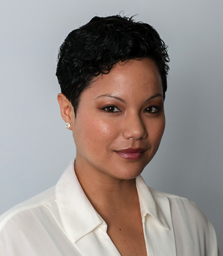 Moira Rachman chose to pursue a PhD as research and education are her passions. At the VU University Amsterdam’s, Medicinal Chemistry group, she gained a strong theoretical and practical background, as well as teaching experience, in the field of medicinal chemistry. Here, she obtained a Bachelor’s in Pharmaceutical Sciences and a Master’s in Drug Discovery & Safety with a specialization in Drug Design & Synthesis. She is enthused by computer aided drug design (CADD) methods aimed at retrieving potent and safe ligands. During her Master’s thesis project, she developed an automated method for gathering ligand-target interaction data on Phosphodiesterases (PDEs). Furthermore, she developed an algorithm that assembled, aligned and docked novel ligands generated from PDE building blocks. She then performed a study on incorporating synthetic feasibility in CADD methods using known fragment libraries. During her Bachelor’s project, she performed docking studies on possible H-1 Receptor (H1R) ligands, and synthesized several H1R ligand analogues. As of September 2016, Moira Rachman will be occupying the ESR9 position, in which the main goals are to create a platform for chemical navigation that is capable of guiding fragment-to-hit evolution, and to apply the method on targets such as epigenetic factors, Janus Kinase and FTSQ.
Moira Rachman chose to pursue a PhD as research and education are her passions. At the VU University Amsterdam’s, Medicinal Chemistry group, she gained a strong theoretical and practical background, as well as teaching experience, in the field of medicinal chemistry. Here, she obtained a Bachelor’s in Pharmaceutical Sciences and a Master’s in Drug Discovery & Safety with a specialization in Drug Design & Synthesis. She is enthused by computer aided drug design (CADD) methods aimed at retrieving potent and safe ligands. During her Master’s thesis project, she developed an automated method for gathering ligand-target interaction data on Phosphodiesterases (PDEs). Furthermore, she developed an algorithm that assembled, aligned and docked novel ligands generated from PDE building blocks. She then performed a study on incorporating synthetic feasibility in CADD methods using known fragment libraries. During her Bachelor’s project, she performed docking studies on possible H-1 Receptor (H1R) ligands, and synthesized several H1R ligand analogues. As of September 2016, Moira Rachman will be occupying the ESR9 position, in which the main goals are to create a platform for chemical navigation that is capable of guiding fragment-to-hit evolution, and to apply the method on targets such as epigenetic factors, Janus Kinase and FTSQ.Project: ESR9: Fragment evolution platform – chemical navigation
Academic supervisor: Prof. Xavier Barril (University of Barcelona)
 Angelo Kenneth Romasanta is a graduate of the Erasmus Mundus Master in Chemical Innovation and Regulation under the consortium of the University of Barcelona, University of Algarve and University of Bologna. Passionate about bridging science and business to catalyze innovation, he took modules on evaluating the discoveries in the laboratory with the current market and regulations landscape. Through a collaboration between the Centro de Quimica Estructural in Lisbon and the Molecular Crystal Engineering group in Bologna, he did his thesis on understanding how new polymorphs, cocrystals and solid solutions can be synthesized from various molecules and evaluating the implications on pharmaceutical patents. Previously, he finished BS Chemistry at Ateneo de Manila University in the Philippines as Magna Cum Laude. He worked on mercury biosensors for mining site health monitoring for his thesis and was later employed as a research assistant on the same project. He has experience working for firms at the interface of science and business: the consumer goods company Procter and Gamble, the technology incubator Ideaspace and founded his own startup. He has attended various business and innovation conferences such as ASEAN Business Challenge in Singapore, Global Startup Youth in Kuala Lumpur and World Business Dialogue in Cologne.
Angelo Kenneth Romasanta is a graduate of the Erasmus Mundus Master in Chemical Innovation and Regulation under the consortium of the University of Barcelona, University of Algarve and University of Bologna. Passionate about bridging science and business to catalyze innovation, he took modules on evaluating the discoveries in the laboratory with the current market and regulations landscape. Through a collaboration between the Centro de Quimica Estructural in Lisbon and the Molecular Crystal Engineering group in Bologna, he did his thesis on understanding how new polymorphs, cocrystals and solid solutions can be synthesized from various molecules and evaluating the implications on pharmaceutical patents. Previously, he finished BS Chemistry at Ateneo de Manila University in the Philippines as Magna Cum Laude. He worked on mercury biosensors for mining site health monitoring for his thesis and was later employed as a research assistant on the same project. He has experience working for firms at the interface of science and business: the consumer goods company Procter and Gamble, the technology incubator Ideaspace and founded his own startup. He has attended various business and innovation conferences such as ASEAN Business Challenge in Singapore, Global Startup Youth in Kuala Lumpur and World Business Dialogue in Cologne.
Project: ESR15: Science, Business & Innovation in the pharmaceutical sciences
Academic supervisors: Prof. Peter van der Sijde, dr. Iina Hellsten & dr. Jacqueline van Muijlwijk (VU University Amsterdam)
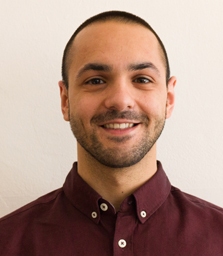 Andrea Scarpino – obtained his MSc in Pharmaceutical Chemistry and Technologies at the Department of Pharmacy, University of Pisa, Italy. His master’s thesis focused on the identification of new LDH-5 inhibitors through a multidisciplinary approach, by combining computational chemistry and synthetic organic chemistry. He mostly applied computer-aided drug design (CADD) approaches to generate a pharmacophore model, to perform virtual screening of compound libraries spanning a wide chemical diversity, and to make reliable predictions by means of consensus docking and molecular dynamics studies. Andrea is mainly interested in developing his computational background in drug discovery, and as ESR8 in FragNet he will apply CADD methods to identify fragment-sized covalent binders to be further extended into lead-like compounds. The ultimate goal of his project is to design and validate a computational protocol that integrates experimental data and covers many aspects of the in silico Fragment-Based Lead Discovery (FBLD) process, for the identification of new covalent inhibitors of FragNet targets.
Andrea Scarpino – obtained his MSc in Pharmaceutical Chemistry and Technologies at the Department of Pharmacy, University of Pisa, Italy. His master’s thesis focused on the identification of new LDH-5 inhibitors through a multidisciplinary approach, by combining computational chemistry and synthetic organic chemistry. He mostly applied computer-aided drug design (CADD) approaches to generate a pharmacophore model, to perform virtual screening of compound libraries spanning a wide chemical diversity, and to make reliable predictions by means of consensus docking and molecular dynamics studies. Andrea is mainly interested in developing his computational background in drug discovery, and as ESR8 in FragNet he will apply CADD methods to identify fragment-sized covalent binders to be further extended into lead-like compounds. The ultimate goal of his project is to design and validate a computational protocol that integrates experimental data and covers many aspects of the in silico Fragment-Based Lead Discovery (FBLD) process, for the identification of new covalent inhibitors of FragNet targets.
Project: ESR8: Virtual Screening of Fragment Libraries of Covalent Binders
Academic supervisor: Prof. dr. György M. Keserű (RCNS)
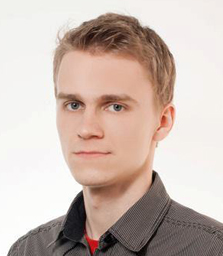 Darius Vagrys – obtained his BSc in Bioengineering in Vilnius Gediminas Technical University (Lithuania) in 2013, followed by MSc in Biochemistry in Uppsala University (Sweden) in 2016. During his studies, he was involved in numerous scientific projects, such as developing and performing interactions assays for protein – small drug-like molecules using surface plasmon resonance (SPR) and thermal shift assay (TSA), in terms of affinity and kinetics. In addition to this, he was also involved in synthesizing short peptides, using solid-state peptide synthesis. His final Master project involved the expression of the target proteins, fragment screening and evaluation of data, addressing Hepatitis C protein NS5B of various genotypes using an SPR based approach, in collaboration with prof. Helena Danielson’s group at Uppsala University and GE Healthcare Bio-Sciences (Uppsala, Sweden). Following this, he worked at GE Healthcare Bio-Sciences developing current and future Biacore SPR systems. Darius is interested in FBDD and the applications of various biophysical techniques (SPR, ITC, MS, NMR and X-ray crystallography) to tackle the occurring challenges.
Darius Vagrys – obtained his BSc in Bioengineering in Vilnius Gediminas Technical University (Lithuania) in 2013, followed by MSc in Biochemistry in Uppsala University (Sweden) in 2016. During his studies, he was involved in numerous scientific projects, such as developing and performing interactions assays for protein – small drug-like molecules using surface plasmon resonance (SPR) and thermal shift assay (TSA), in terms of affinity and kinetics. In addition to this, he was also involved in synthesizing short peptides, using solid-state peptide synthesis. His final Master project involved the expression of the target proteins, fragment screening and evaluation of data, addressing Hepatitis C protein NS5B of various genotypes using an SPR based approach, in collaboration with prof. Helena Danielson’s group at Uppsala University and GE Healthcare Bio-Sciences (Uppsala, Sweden). Following this, he worked at GE Healthcare Bio-Sciences developing current and future Biacore SPR systems. Darius is interested in FBDD and the applications of various biophysical techniques (SPR, ITC, MS, NMR and X-ray crystallography) to tackle the occurring challenges.Project: Development of FBLD techniques for Intrinsically Disordered Proteins
Industrial supervisor: Dr Ben Davis (Vernalis Research)
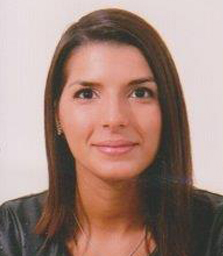 Lorena Zara – graduated at the University of Cagliari, Italy. During her studies she learned how to use the X-ray diffraction for identifying the molecular structure within a protein crystal. During her work in Organic Synthesis at the University of Cagliari, under the supervision of Prof. Dr. Elias Maccioni, she was trained in the use of nuclear magnetic resonance spectroscopy for identification, hit validation, optimization and potential structure-based drug design and learned how to synthesize novel triazine derivatives, as inhibitors of HIV-1 reverse transcriptase increasing her skills in drug discovery. From September 2015 to March 2016, she participated in the research activity on control and harvest of the bacterial expression of a protein and learned how to use the high performance liquid chromatography for the isolation and purification of the 17β-HSD14 protein with research group of Prof. Dr. Gerhard Klebe, at the Pharmaceutical Chemistry department of Philipps Universität Marburg, Germany. From September 2013 to September 2014 she spent a year, within the LLP/Erasmus program, at the University of Granada, Spain. There, she had the opportunity to expand her practical experience by working in different laboratories.
Lorena Zara – graduated at the University of Cagliari, Italy. During her studies she learned how to use the X-ray diffraction for identifying the molecular structure within a protein crystal. During her work in Organic Synthesis at the University of Cagliari, under the supervision of Prof. Dr. Elias Maccioni, she was trained in the use of nuclear magnetic resonance spectroscopy for identification, hit validation, optimization and potential structure-based drug design and learned how to synthesize novel triazine derivatives, as inhibitors of HIV-1 reverse transcriptase increasing her skills in drug discovery. From September 2015 to March 2016, she participated in the research activity on control and harvest of the bacterial expression of a protein and learned how to use the high performance liquid chromatography for the isolation and purification of the 17β-HSD14 protein with research group of Prof. Dr. Gerhard Klebe, at the Pharmaceutical Chemistry department of Philipps Universität Marburg, Germany. From September 2013 to September 2014 she spent a year, within the LLP/Erasmus program, at the University of Granada, Spain. There, she had the opportunity to expand her practical experience by working in different laboratories.
Project: ESR11: Fragment-based approaches to identify novel PPI inhibitors
Academic supervisors: Dr. Jacqueline van Muijlwijk and prof. dr. Iwan de Esch (VU University Amsterdam)
Contact details
Please contact us at:
info@fragnet.eu
FRAGNET Coordinator
VU University Amsterdam
The Netherlands
Funded by
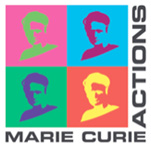 Marie Curie Actions
Marie Curie Actions
 EU Horizon 2020
EU Horizon 2020
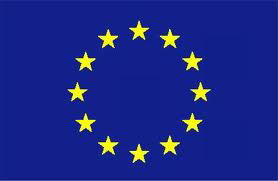 European Union
European Union
